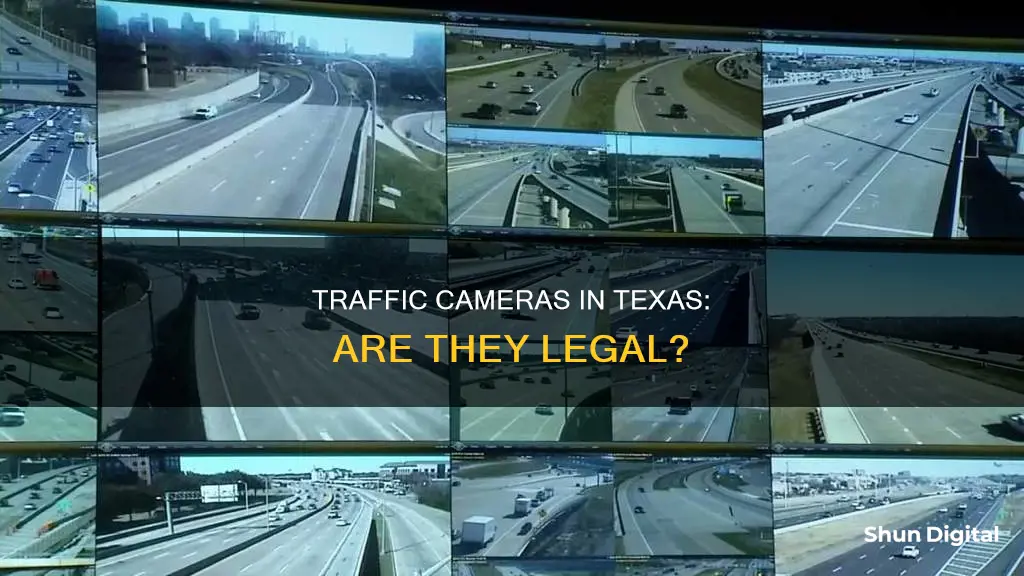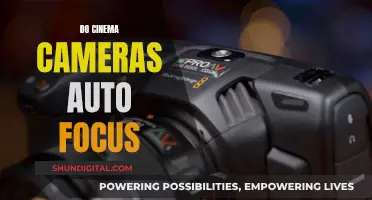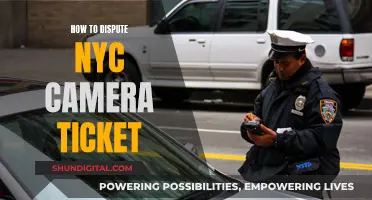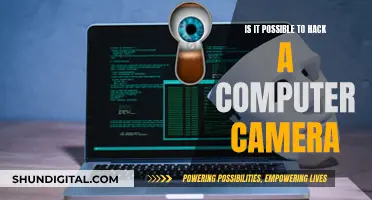
Red-light cameras have been a divisive topic in Texas for years. In 2019, Texas Governor Greg Abbott signed House Bill 1631 into law, banning the use of red-light cameras across the state. This legislation prohibited local authorities from installing or operating photographic traffic signal enforcement systems and using evidence from such systems. The ban was enacted due to various criticisms of the cameras, including concerns about government overreach, violations of due process, and a focus on revenue generation rather than safety. While some cities in Texas have since removed their red-light cameras, others have continued to operate them under existing contracts with vendors.
| Characteristics | Values |
|---|---|
| Are traffic cameras illegal in Texas? | Yes, the Texas legislature banned the use of photographic traffic enforcement systems in 2019. |
| When did the ban come into effect? | June 2, 2019 |
| What is the law called? | House Bill 1631 |
| What does the law state? | Local authorities are no longer permitted to install or operate photographic traffic signal enforcement systems, or red light cameras, and the use of evidence from photographic enforcement systems is prohibited. |
| Are there any exceptions to the ban? | Cities with existing contracts with third-party operators can continue running the cameras until the contracts expire. |
| Which cities are allowed to continue using the cameras? | Humble, Balcones Heights, Amarillo, Leon Valley, and Dallas. |
| What happens if you receive a ticket from a traffic camera? | You are not required to pay it. |
What You'll Learn

Traffic camera tickets are not criminal citations
In the state of Texas, traffic camera tickets are not considered criminal citations, and they differ from traditional tickets in several ways. These tickets are typically issued through automated enforcement technologies, such as red-light cameras or speed cameras, which detect and record vehicles committing traffic violations. While these tickets may carry fines and penalties, they are treated as civil penalties rather than criminal offenses.
When a traffic camera captures a vehicle committing a violation, the registered owner of the vehicle is typically mailed a notice of violation, which includes evidence of the infraction, such as photographs or video footage. It is important to note that these tickets are issued to the vehicle's owner, regardless of who was driving at the time of the offense. The owner of the vehicle is held responsible for paying the fine or challenging the ticket through the civil court system.
The consequences of a traffic camera ticket are generally limited to monetary fines, and they do not result in points being assessed against your driver's license or affect your driving record. This is a key distinction from traditional criminal citations, which can carry more severe penalties, including license suspension, jail time, or criminal charges on your record. However, failure to pay or contest a traffic camera ticket within the specified timeframe can result in additional penalties, such as late fees or vehicle registration holds.
It is important to understand your rights and options when receiving a traffic camera ticket. You have the right to contest the ticket and present your case in court, just as you would with a traditional citation. You may choose to represent yourself or hire an attorney to assist you in challenging the evidence or arguing against the validity of the ticket. The burden of proof lies with the issuing entity to demonstrate that a violation occurred and that the ticket was issued correctly and in accordance with the law.
Laser Auto Focus Camera: How Does It Work?
You may want to see also

Red-light cameras were banned in Texas in 2019
Red-light cameras, also known as photographic traffic signals, were banned in Texas in 2019. The legislation, House Bill 1631, was signed into law by Texas Governor Greg Abbott. This law prohibits local authorities from installing or operating red-light cameras and using evidence from photographic enforcement systems.
Before the ban, red-light cameras were used to capture and issue traffic violations, such as running a red light or speeding through an intersection, without the need for police intervention. The tickets issued by these cameras were considered civil violations, similar to parking tickets, and did not affect driving records or insurance costs.
There were several reasons for the ban. Many Texas residents did not support the installation of red-light cameras, citing concerns about privacy invasion. Critics of the cameras also argued that they were a form of government overreach and that they violated a driver's right to due process. Some believed that the primary intent of the cameras was to generate revenue rather than improve safety. Additionally, there were conflicting views on the effectiveness of red-light cameras in improving safety, with critics arguing that they could lead to more rear-end collisions as drivers abruptly stopped to avoid citations.
However, it is important to note that some cities in Texas were allowed to continue using red-light cameras if they had existing contracts with vendors. These cities, including Balcones Heights, Humble, Leon Valley, and Amarillo, were permitted to operate the cameras until the expiration of their contracts, unless there was a specific clause allowing for early termination in the event of a state ban.
The ban on red-light cameras in Texas has created a grey area regarding traffic camera tickets. While most cities have phased out the use of these cameras, there are still some instances where drivers may receive tickets from remaining cameras. Whether or not to pay these fines depends on an individual's personal approach to risk and their willingness to contest the tickets legally.
Focusing a Polaroid Land Camera 101: Tips and Tricks
You may want to see also

Cities can still operate red-light cameras under certain conditions
In 2019, Texas banned the use of red-light cameras, which had been installed in several cities to capture and issue traffic violations without police intervention. The ban was in response to Texas residents' concerns about privacy invasion and the cameras being a symbol of government overreach. However, certain cities were able to continue using these cameras under specific conditions.
The continued use of red-light cameras by some cities in Texas is permitted under House Bill 1631, which contains provisions allowing municipalities to fulfil existing contracts with vendors. Cities that had enacted ordinances before May 7, 2019, and had entered into contracts for the administration and enforcement of photographic traffic signal enforcement systems, are allowed to continue operating these systems until the expiration date specified in the contract. This is permitted as long as the contract does not include a clause allowing for early termination in the event of a state ban.
Cities that fall under this category include Humble, whose contract to operate red-light cameras ends in 2024, as well as Balcones Heights, Leon Valley, and Amarillo. These cities are exempt from the ban and can continue to issue tickets and fines for red-light camera violations. However, it is important to note that paying these fines is voluntary, and there are no legal ramifications for non-payment.
While the ban on red-light cameras in Texas is in place, there are still some instances where drivers may receive tickets from remaining cameras in certain jurisdictions. It is recommended to consult with a lawyer or legal professional for advice on how to handle these tickets, as the legality and enforceability of these fines are ambiguous.
Charging Camera Batteries: DIY Hacks Without a Charger
You may want to see also

Critics argue red-light cameras are unconstitutional
In 2019, Texas banned the use of red-light cameras. However, critics argue that red-light cameras are unconstitutional, sparking a heated debate. The controversy surrounding these cameras revolves around concerns of privacy, due process, and legal challenges.
Privacy is a significant issue in the debate over red-light cameras. The American Civil Liberties Union (ACLU) has expressed concerns about increased government surveillance and potential data misuse. They propose alternative solutions, such as speed bumps, to address traffic safety without infringing on privacy rights.
Critics also argue that red-light cameras violate due process, a legal concept that ensures individuals are treated fairly without infringing on their rights. Some contend that these cameras could violate the Sixth Amendment's Confrontation Clause, which grants criminal defendants the right to confront their accusers. In response, supporters of the cameras assert that they do not transgress procedural due process and are constitutional.
The use of red-light cameras has also sparked legal challenges. Some argue that the cameras do not meet the requirements of the Confrontation Clause because there is no reliable witness to the traffic violation. Additionally, critics argue that the use of these cameras shifts the burden of proof onto the defendant, which is impermissible.
While courts have generally upheld the constitutionality of red-light cameras, the debate continues, with critics arguing that they can lead to corruption and are an invasion of privacy. Proponents, on the other hand, emphasise their role in promoting public safety and maintaining law and order.
Fight Red-Light Camera Tickets: Know Your Rights
You may want to see also

Red-light cameras can cause more accidents
In 2019, Texas banned the use of red-light cameras, a divisive topic in the state for years. While some cities installed them at intersections to stop people from running red lights, others believed the cameras were a symbol of government overreach and a violation of their privacy.
Those opposed to red-light cameras argue that they can cause more accidents. This argument is based on the idea that to avoid a citation for running a red light, drivers will slam on their brakes at an intersection, causing more rear-end collisions. While cities that use the cameras justify their implementation from a safety perspective, asserting that they reduce collisions and save lives, critics argue that the data does not always support this claim.
For example, in Fort Collins, Colorado, there was an 83% increase in the number of accidents since red light cameras were installed. In Washington, D.C., there was a 107% increase in accidents at intersections with red-light cameras. In Portland, Oregon, KATU News found a 140% increase in rear-end crashes at intersections with red light cameras. In Corpus Christi, Texas, data showed a 14% increase in the total number of accidents at nine locations with red light cameras, and a 28% increase in accidents involving injuries.
However, it is important to note that not all studies have found an increase in accidents at intersections with red-light cameras. Some studies have even reported a decrease in accidents. For example, in Sugar Land, Texas, data showed a 50% reduction in accidents at monitored intersections during the first six to eight years that red light cameras were in operation. Additionally, an IIHS study found that red light safety cameras reduced the fatal red light running crash rate in large cities by 21% and the rate of all types of fatal crashes at signalized intersections by 14%.
While the data on the effectiveness of red-light cameras in reducing accidents is mixed, it is clear that their implementation can be controversial and may not always have the desired effect of improving safety.
Ubiquiti Cameras: Where Are They Manufactured?
You may want to see also
Frequently asked questions
Yes, the Texas legislature banned the use of photographic traffic enforcement systems in 2019.
You do not have to pay it.
Red light cameras were divisive in Texas. Many saw them as a symbol of government overreach and argued that they were unconstitutional as they violated a driver's right to due process. Some also believed that the cameras decreased safety at intersections.







